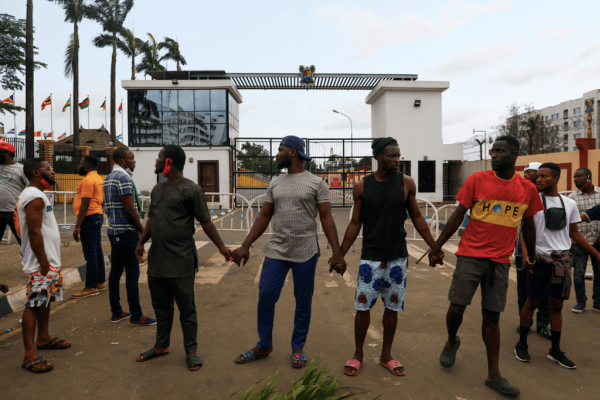Nov 2, 2020
Some religious leaders believe the national protests are capable of helping to strengthen Nigeria’s democratic institutions. “If the international community is seeing this, they would see it as a people who are trying to rediscover themselves,” he said. “Our democracy is not perfect; it’s still developing. And this will help hasten the elements that would in the long run improve our democratic credentials.”
Read the Full Article

Already a subscriber? Login
